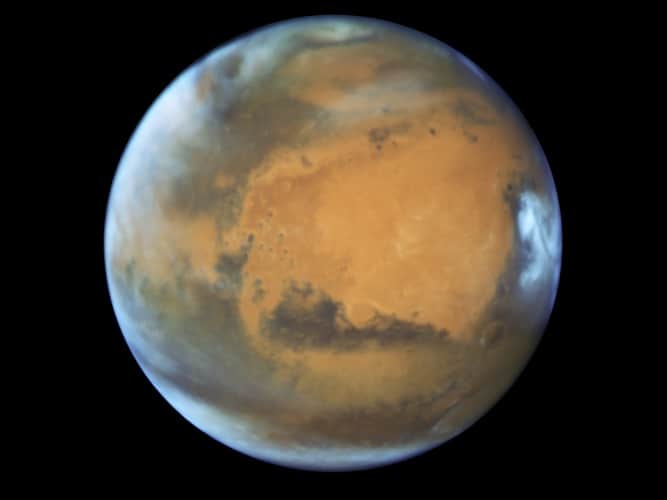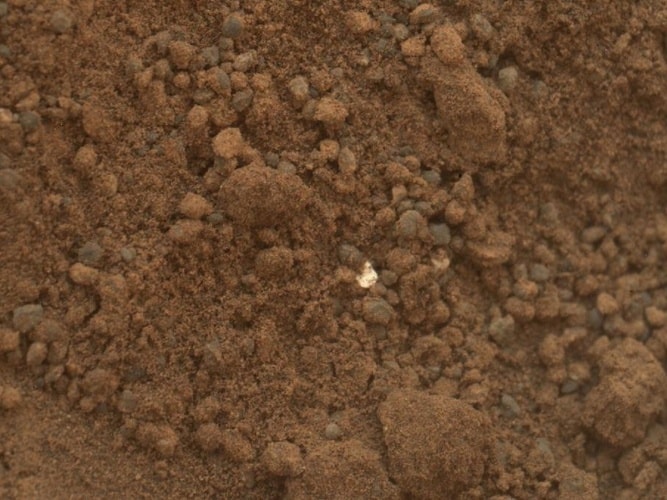
Part of an agreement signed by NASA and ESA in April 2018, the two studies will explore how to collect soil samples harvested by NASA’s Mars2020 rover, then launch them to orbit and bring them back to Earth. A Sample Fetch Rover will pick up the 36 pen-size canisters that the Mars2020 rover has filled. These samples will then be transferred to a Mars Ascent Vehicle, which will place them in orbit around Mars.
If all goes smoothly to this point, an Earth Return Orbiter will then capture the basketball-sized container, seal it to prevent contamination, and bring it back to Earth.
“With the combined expertise of ESA and NASA, this landmark mission is ambitious and technologically very advanced, with two rovers interacting together on Mars for the first time,” said Ben Boyes, the Airbus project manager for the Sample Fetch Rover study. “A double first of launching from the planet’s surface and the in-orbit transfer of the samples means it will be possible for the first time to directly study Mars soil in laboratories on Earth.”
According to Airbus, the Sample Fetch Rover is due to launch in 2026, with the Earth Return Orbiter landing somewhere in the United States sometime before the end of the decade. If the Martian soil makes it to Earth, scientists around the world will then spend years studying it using the latest equipment and techniques.

“A Mars sample return mission is a tantalising but achievable vision that lies at the intersection of many good reasons to explore space,” said David Parker, ESA’s director of Human and Robotic Exploration. “There is no question that for a planetary scientist, the chance to bring pristine, carefully chosen samples of the Red Planet back to Earth for examination using the best facilities is a mouth-watering prospect.
“Bringing samples back from Mars is essential in more than one way. Firstly, to understand why Mars, although it is the planet that is most similar to Earth, took a very different evolutionary path than Earth, and secondly, to fully comprehend the Martian environment in order to allow humans to one day work and live on the Red Planet.”




Swiss geoengineering start-up targets methane removal
No mention whatsoever about the effect of increased methane levels/iron chloride in the ocean on the pH and chemical properties of the ocean - are we...